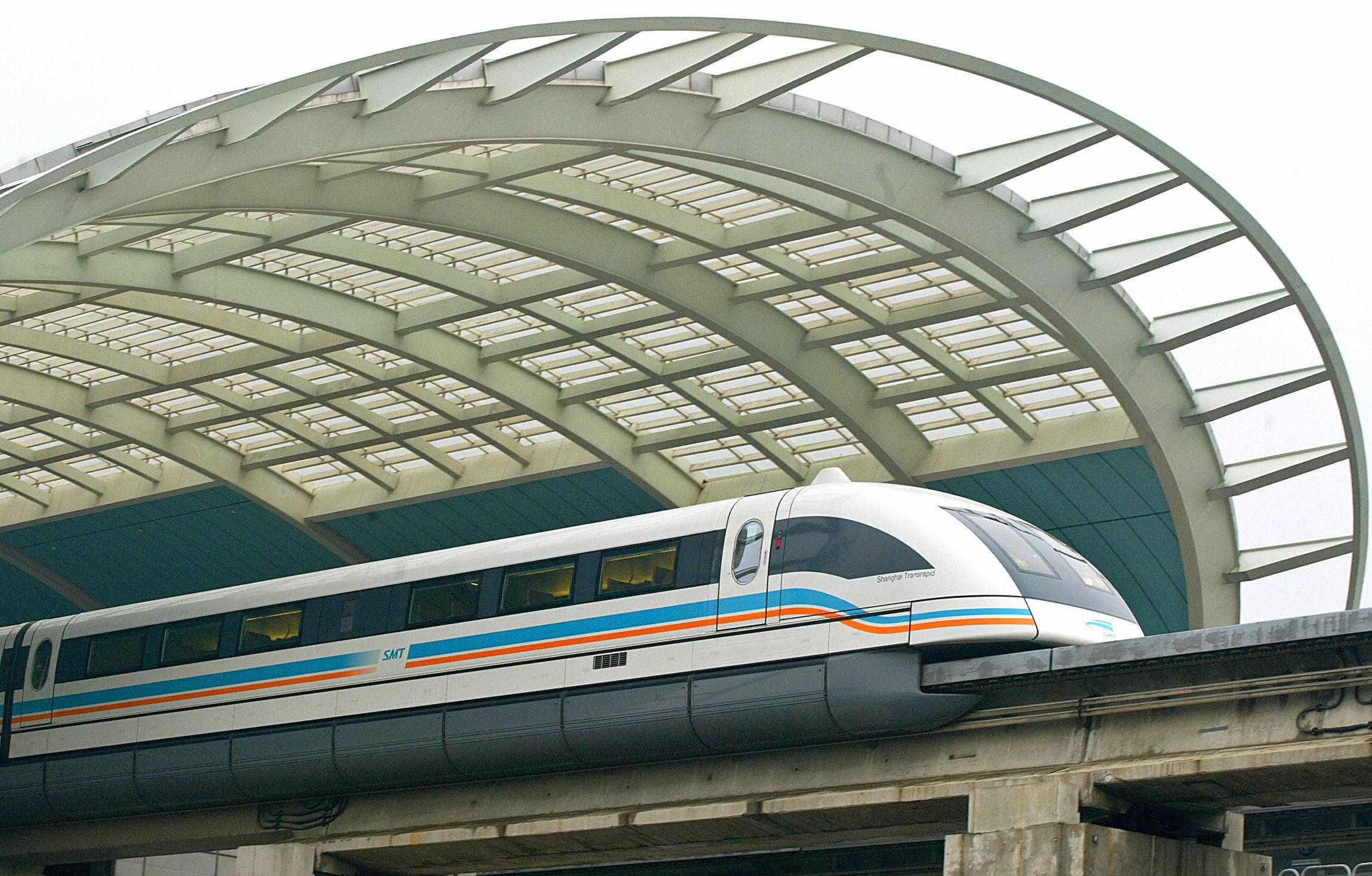
China has taken the first real step to debuting levitating trains that can reach speeds of more than 600 miles per hour.
Researchers at Southwest Jiaoton University have built the first high-temperature superconducting magnetic levitation loop that they hope can revolutionize train travel. The invention is still only small—41 yards around—but will be capable of testing a load capacity of about 660 to 2,200 pounds.
The track would levitate the carriage almost an inch above the ground. In the test model, the mini train will start out at speeds of up to 30 mph. By moving in a vacuum-sealed tube, the carriage is not slowed down by wind resistance. The new Super Maglev would also uses less magnets and materials than traditional bullet trains.
Speaking to China Central Television, lead engineer Deng Zigang said he hoped the trains could reach speeds of 250 mph by the end of 2018.
China already uses a maglev train in Shanghai, between the Pudong Airport and city center. It can reach a top speed of 267 mph. China's Fuxing trains—which connect Shanghai to Beijing—also regularly travel at around 217 mph.
The fastest recorded speed of a train belongs to the Japanese bullet train—SC Maglev—which has reached a top speed of 375 mph.
Based on the theoretical speeds, the new Super Maglev train would be capable of travelling from New York City to Washington, D.C. in just over 20 minutes. The Super Maglev would reach Seattle from Los Angeles in about two hours.
The United States has never been able to compete with Asia for fast trains. The fastest local train is the Amtrak Acela Express which can reach speeds of 150 mph.
In August, the China Aerospace Science and Industry Corporation claimed that it was working on "flying trains" that could travel at 2,485 mph.
Although little information has been confirmed or revealed about the "flying trains," speeds like that would get passengers from New York to Los Angeles in just an hour.
Uncommon Knowledge
Newsweek is committed to challenging conventional wisdom and finding connections in the search for common ground.
Newsweek is committed to challenging conventional wisdom and finding connections in the search for common ground.
About the writer
James Hetherington is a staff reporter for Newsweek covering technology.
Based in London, James previously covered technology for International Business Times ... Read more
To read how Newsweek uses AI as a newsroom tool, Click here.








